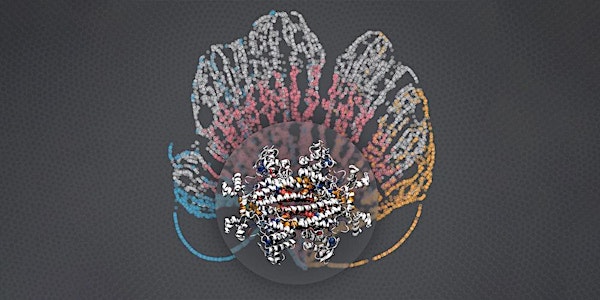
UCL Computational Cancer Collaboratorium Seminar Series
On-going seminar series
Location
See event details
UCL Gower Street London WC1E 6BT United KingdomAbout this event
- 1 hour
UCL Computational Cancer Collaboratorium Seminar Series
UCL’s Computational Cancer Collaboratorium draws together the extensive and diverse expertise in UCL in the area of computational cancer, and to enhance and enable collaborative working in the area. Our new seminar series reflects this cross-disciplinary interest, bringing together leading speakers from across cancer and computational science.
Students and staff from all faculties are welcome and encouraged to join.
Upcoming Seminars
Date and time: Tuesday 30 April 2024 | 12:00pm-1:00pm (GMT)
Location: Cruciform Building, Lecture Theatre 2, Gower Street, London, WC1E 6BT
Speaker: Professor Karen Page, Professor of Mathematical Biology, Department of Mathematics, UCL
Title: Evolution of cooperation in epithelia and mathematical modelling of CAR-T cell therapy
Abstract: This is a talk in two parts. First, Professor Page will discuss the evolution of cooperation in epithelia. This may be relevant to tumorigenesis, where cells evolve to produce growth factors which help other cells at a cost to themselves. Evolution of cooperation has been studied in well-mixed populations, on spatial lattices and on general fixed graph-structures. In epithelia, the population structure changes in time. Here we attempt to define the role of this changing structure in the evolution of cooperation. Secondly, she will discuss preliminary models of CAR-T cell therapies for cancer. In treating ALL, it appears from our model analysis that the dynamics of memory CAR-T cells are crucial in determining success of therapy. We also compare several mechanisms of escape from treatment control.
Biography: Karen Page is a Professor of Mathematical Biology at UCL. She studied Mathematics at Queens’ College, Cambridge (MA, MMath). Her DPhil, on the topic of patterning in embryology, was completed in Oxford in 1999. She then went to the Institute for Advanced Study in Princeton as a postdoctoral fellow. There, she studied evolutionary game theory and evolutionary dynamics. She joined the Department of Computer Science at UCL in 2001 as a Lecturer in Bioinformatics and subsequently moved to the Department of Mathematics in 2006. During her time at UCL, she has worked on applying mathematical models to a variety of areas of biology, and is particularly interested in developmental biology, evolution and cancer.
_________________________
Date and time: Tuesday 28 May 2024 | 12.00pm -1:00pm (GMT)
Location: Cruciform Building, Lecture Theatre 2, Gower Street, London, WC1E 6BT
Speaker: Professor Philip Maini, Professor of Mathematical Biology, University of Oxford
Title: Mathematical Modelling of Tumour Cell Heterogeneity
Abstract: It is becoming clear that tumour cell heterogeneity plays a very important role in cancer growth. How these different phenotypes interact with each other is an important question for which mathematical modelling provides tools to investigate. Using a partial differential model framework, we will first consider the case where we propose that different tumour cell types may be cooperating to facilitate and enhance invasion. Then, we will use ordinary differential equation and agent-based models to consider competition between drug-sensitive and drug-resistant cells and how this can be leveraged to potentially provide therapeutic advantage.
Biography: Philip Maini is Professor of Mathematical Biology at University of Oxford. He is an internationally distinguished applied mathematician who has made substantial and sustained contributions to both Biology and Medicine. He has played a very significant role within the UK in fostering a strong school of mathematical biology within the university sector where he has been an important academic leader and a mentor to many young individuals at the interface of maths and medicine. The breadth of Professor Maini’s contributions is remarkable, having spanned (inter alia) developmental biology, systems biology, host-pathogen interactions, tumour biology, multiscale modelling, intestinal crypt morphogenesis, and spatial patterning.
Don't miss a thing!
Sign up now and we'll update you with the latest news and events.
Organised by
The UCL Events team organise talks, seminars, workshops, lectures, performances and exhibitions open to everyone. Find out more and book your place: https://www.ucl.ac.uk/ucl-minds/